GBN Health Check: Can dietary supplements increase the risk of cancer? Experts weigh up the pros and cons
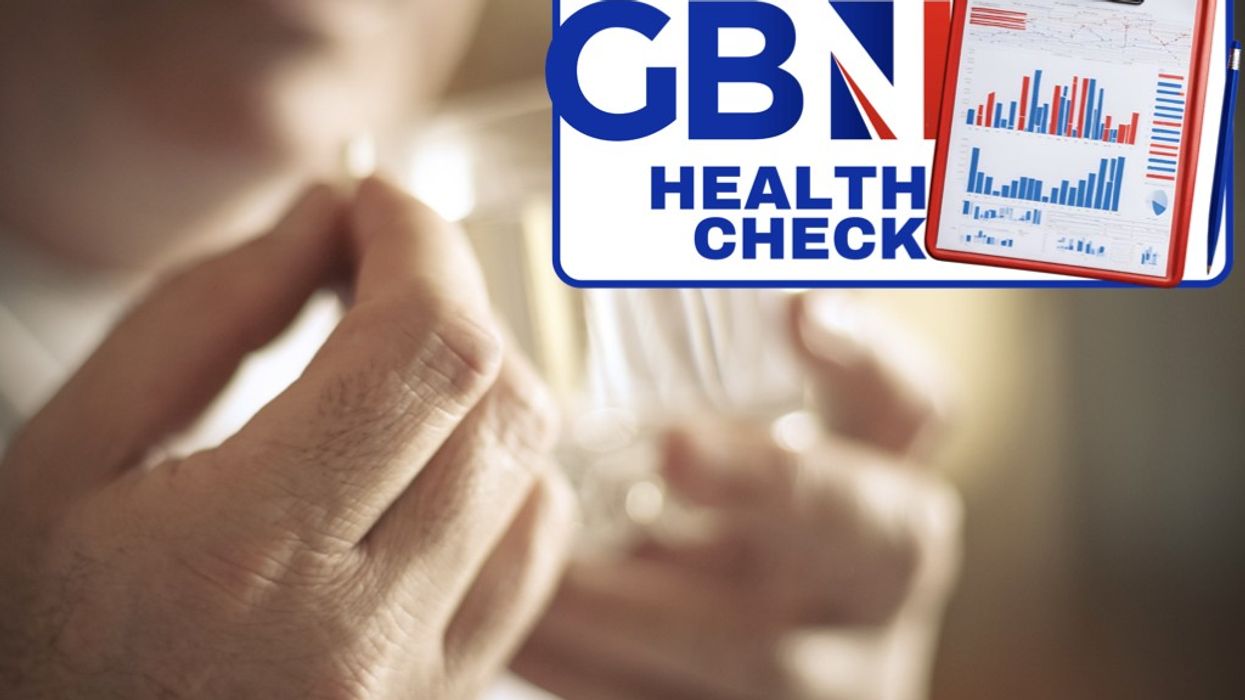
Several supplements have been linked to an increased incidence of cancer
|Getty Images/GB News

For this week's GB News Health Check, our digital Health Editor Adam Chapman explores the complex relationship between dietary supplements and the risk of cancer
Don't Miss
Most Read
Latest
During an exchange between Robert Oppenheimer and scientist Niels Bohr in Christopher Nolan's Oscar-winning biopic Oppenheimer, Bohr says to the father of the atomic bomb: "You can't lift the stone without being ready for the snake that's revealed."
This is a profoundly unsettling observation about scientific inquiry: it can have unforeseen consequences.
The luminary was of course referring to the creation of a weapon that can wipe out humanity but scientists routinely make alarming discoveries.
One decidedly less existential but still concerning insight emerged around 30 years ago.
It spawned out of the initial observation that people who ate more fruits and vegetables tended to have less cancer.
Researchers wanted to see if taking extra vitamins and minerals would reduce cancer risk even further.
“When we first tested dietary supplements in animal models we found that the results were promising,” said former University of Colorado Cancer Center investigator Tim Byers.
“Eventually we were able to move on to the human populations. We studied thousands of patients for ten years who were taking dietary supplements and placebos.”
The results were not what they expected.
“We found that the supplements were actually not beneficial for their health. In fact, some people actually got more cancer while on the vitamins,” explained Doctor Byers.
One trial exploring the effects of beta-carotene supplements showed that taking more than the recommended dosage increased the risk for developing both lung cancer and heart disease by 20 percent.
Folic acid, which was thought to help reduce the number of polyps in a colon, actually increased the number in another trial.
“This is not to say that people need to be afraid of taking vitamins and minerals,” noted Doctor Byers.
“If taken at the correct dosage, multivitamins can be good for you. But there is no substitute for good, nutritional food.”
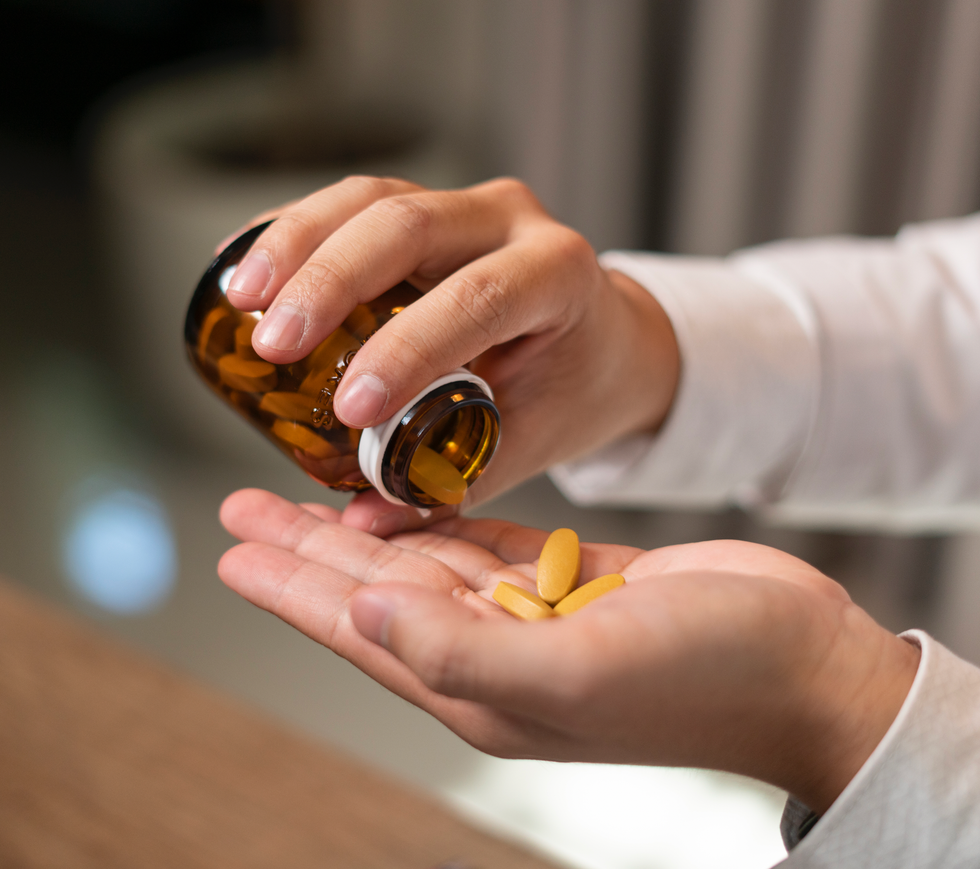
Beta carotene supplements linked to an increased risk of developing both lung cancer
|Getty Images
The cancer investigator says that people can get the daily recommended doses of vitamins and minerals in their diets by eating healthy meal and that many adults who take vitamin supplements may not need them.
“At the end of the day we have discovered that taking extra vitamins and minerals do more harm than good,” warned Doctor Byers.
He is not alone in this assessment. The World Cancer Research Fund (WCRF) analysed global research on how certain vitamins, minerals and other nutrients affect the risk of developing cancer.
The WCRF found "strong evidence" that beta-carotene supplements increase the risk of lung cancer in people who smoke or used to smoke tobacco.
Although Francisco Contreras, Chief Oncologist at Oasis of Hope Hospital, finds this conclusion somewhat "exaggerated", telling GB News that the research only takes into account the effect of beta-carotene in smokers, not in any other subgroup and not for any other phytochemical.
Beta-carotene belongs to a group of colored pigments called carotenoids. It's converted to vitamin A in the body and found in many fruits and vegetables.
Taking big doses of vitamin A can be toxic so supplementation can be dangerous.
How much is too much?
Do not take more than 7mg of beta-carotene supplements a day unless advised to by a doctor, advises the Department of Health and Social Care (DHSC).
The link is concerning but the WCRF is keen to guard against alarmism.
"While there is evidence that consuming certain supplements increases the risk of cancer in specific circumstances, it should be stressed that this is in narrowly defined cases," a spokesperson for the WCRF told GB News.
They continued: "In general, it is best to eat a healthy diet than rely on dietary supplements to protect against cancer, which is why the World Cancer Research Fund recommends that people do not use supplements for cancer prevention."
LATEST DEVELOPMENTS
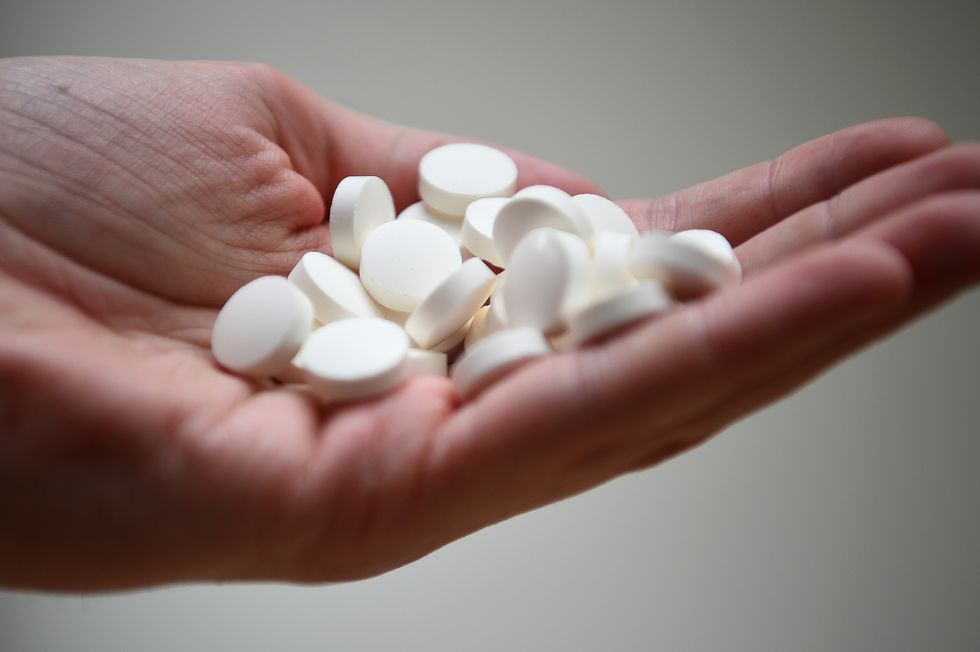
Vitamin E supplementation significantly increased the risk of prostate cancer in a large study
| PABeta-carotene is not the only dietary supplement to raise alarm bells.
Results from the Selenium and Vitamin E Cancer Prevention Trial (SELECT), which was set up to see if one or both of these substances could help prevent prostate cancer when taken as dietary supplements, suggested that vitamin E supplementation in the general population of healthy men significantly increased the risk of prostate cancer.
SELECT is the first study to report an increased risk of prostate cancer with vitamin E supplementation.
The finding stunned the researchers, who set out to see if one or both of these substances could help prevent prostate cancer when taken as dietary supplements.
The results from this study prompted the Food Standards Agency to request an opinion from the Committee on Carcinogenicity (COC) on the current literature on vitamin E and prostate cancer with an emphasis on the SELECT study.
The COC evaluates chemicals for their human carcinogenic potential at the request of UK Government Departments and Agencies.
The Committee noted the evidence that vitamin E can act as both an antioxidant and a pro-oxidant depending on the dose. Therefore high doses of vitamin E may increase the risk of cancer.
However, the committee acknowledged that aspects of the study's design make its conclusions "unreliable".
Members felt that many important confounders were not adequately dealt with in the SELECT study, such as obesity, genetic variation and other dietary factors.
The DHSC nonetheless advises that most people obtain all the vitamin E they need through a healthy, balanced diet.
Taking 540mg (800 IU) or less a day of vitamin E supplements is unlikely to cause any harm.
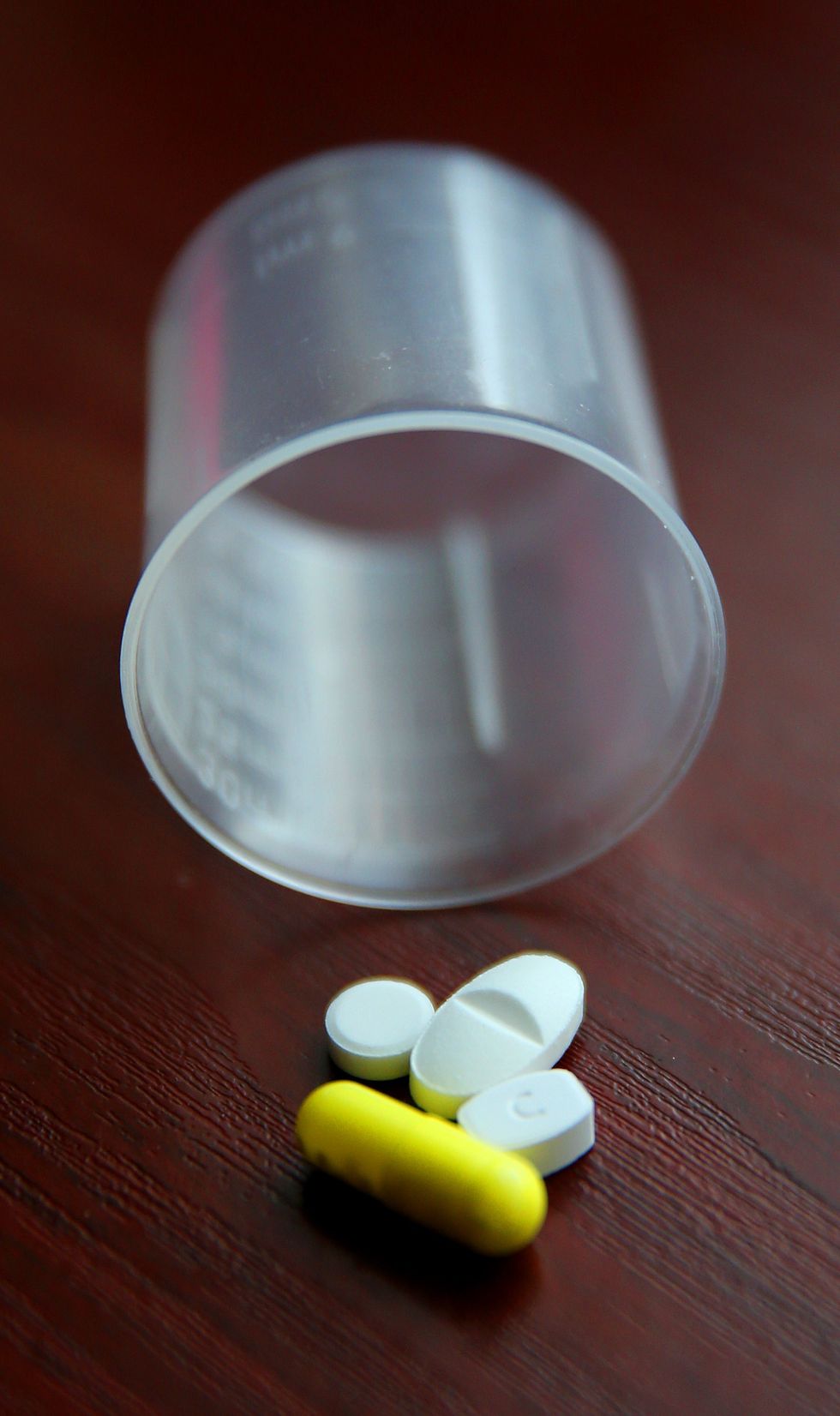
Vitamin E can act as both an antioxidant and a pro-oxidant depending on the dose
| PADisaster looms?
Fast forward to 2024 and concerns around the link between dietary supplements and cancer appear to be growing.
"Recent evidence suggests that supplements, including compounds and micronutrients, can potentially increase the risk of some cancers and overall mortality," Sean Marchese of The Mesothelioma Center told GB News.
The nurse, who has spent decades working in oncology clinical trials, says the recent increase in their use is "concerning".
Indeed, the supplements industry is not subject to the same regulatory scrutiny as the drug industry, and yet is projected to double its current market size of £40billion by 2032.
"It's essential to look into the risks of taking them too often or in large amounts," the health expert warned.
While dietary supplements can be a convenient source of essential micronutrients, it's important to be aware of the "influence of marketing tactics", he says, addng that "these tactics often promote the simultaneous use of multiple unnecessary nutritional supplements, which can lead to overconsumption and potential health risks".
A 2024 study showed that several types of supplements taken over many years increased cancer incidences.
Researchers found that vitamin A overuse increased the risk of lung and prostate cancer.
They also found B vitamins were linked a higher incidence of colon, lung and prostate cancer.
Zinc, selenium and omega-3 also led to more cases of prostate cancer.
The researchers acknowledge that correlation is not the same as causation and more research is needed to confirm the link between supplementation and cancer risk.
A note of caution
It's important to stress that the research mainly refers to oversupplementation and some people may need to have dietary supplements if they have low levels of certain nutrients.
For example, "your doctor might prescribe calcium and Vitamin D to protect your bones", notes Cancer Research UK.
If you are to take supplements, "always follow the NHS guidelines or the advisement of a healthcare professional", advised Doctor Eamon Laird, Nutrition Lecturer at ATU Sligo & Assistant Professor, Trinity College Dublin.
Likewise, Carolina Goncalves, superintendent pharmacist at Pharmica recommends always following the daily recommended intake listed for each vitamin supplement on the bottle and speaking with a pharmacist or doctor beforehand to be sure of the potential effects.
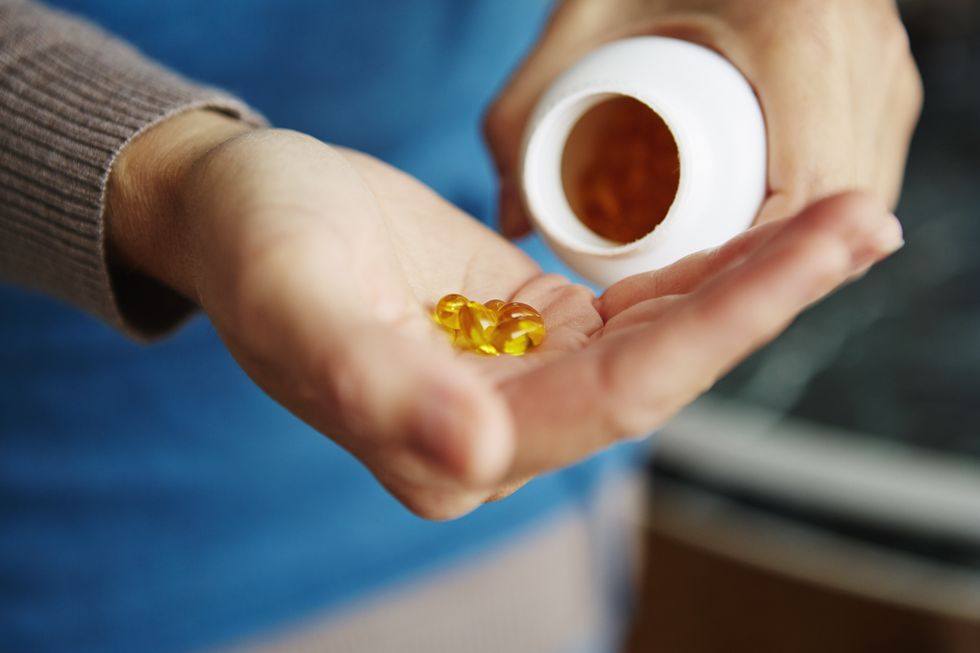
Some people may need to have dietary supplements if they have low levels of certain nutrients.
| Getty ImagesNo substitute for a healthy lifestyle
As Cancer Research UK rightly points out, eating a healthy, balanced diet is the best way to reduce the risk of cancer.
This is partly because of the diet itself, but mostly because it can help you keep a healthy weight or lose weight.
A healthy diet has lots of fruit and vegetables, wholegrains, like brown rice or brown pasta, and healthy sources of protein like beans or chicken. It's low in processed and red meat, and foods high in sugar, fat and salt.
Along with an active lifestyle, a healthy diet can even improve the overall survival odds of patients living with cancer, recent research suggests.










